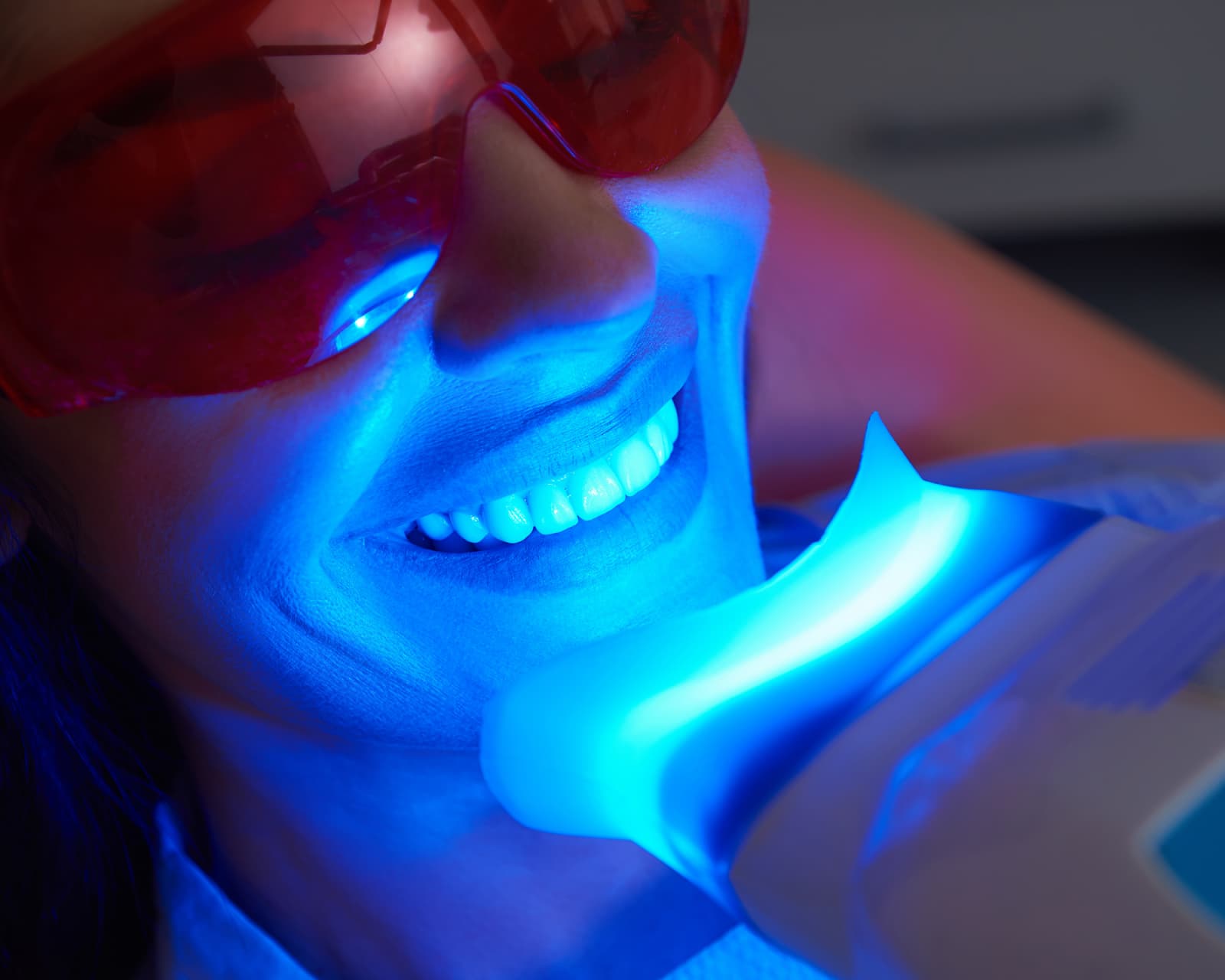
When it comes to your smile, studies show that whiter teeth really stand out and bring about the most beautiful smiles! When people whiten their teeth, not only are they viewed as looking younger, but studies also show that people appear healthier too! This is most often due to the yellowing of teeth associated with aging or smoking.
A common question that we get about whitening is whether or not whitening is bad for your teeth. Since there are many different options to whitening your teeth, there are many factors to consider. While there is no evidence that whitening causes long term damage to the enamel on your teeth, there are a few side effects that can come along with teeth whitening.
Increased Tooth Sensitivity
You may notice increased tooth sensitivity when using over-the-counter or whitening products from your dentist. Tooth sensitivity is usually caused by the bleach that is used to lighten your teeth.
The bleach can cause your teeth to be temporarily porous, and as a result, the micro tubules within your teeth open up. These microscopic tubules lead to the center of your tooth, where your nerve is housed.
When these tubules are opened up, it can increase sensitivity, and you may notice it as a sharp, sudden pain. Usually this pain is triggered by something hot, cold, or by an object such as a toothbrush passing by the area. Once the trigger is removed, the pain typically goes away.
Alleviating Tooth Sensitivity After Whitening
The good news is that whitening doesn’t cause permanent damage to your teeth. Over time, your teeth will absorb minerals back into the porous surface. Once this happens, the sensitivity will likely lessen or disappear entirely.
Following these guidelines and tips can also help with sensitivity:
- Brushing twice a day with a sensitivity toothpaste, such as Sensodyne, twice a day can help to keep any sensitivity from whitening away.
- A soft-bristled toothbrush is always recommended as this is easier on your gum tissue and enamel.
- Rinsing and brushing with fluoridated products can help replace minerals within your teeth. This can help with cavities but also with tooth sensitivity.
- Acidic foods and drinks should be avoided, especially during whitening, as they tend to be harder on the enamel of your teeth.
- Stick to room temperature foods and drinks as sudden temperature changes can cause more sensitivity.
Irritated Gums
Another possible side effect of whitening is irritated gums. Fortunately, this one is pretty easy to eliminate by knowing how to use whitening products properly. Whitening products should not be used on your gum tissue as your gum tissue is more delicate than tooth enamel.
When you whiten through our dental office, our dental team goes over how to wear whiteners properly and avoid damaging or irritating your gum tissue.
At Riverside Dental, we strongly recommend visiting your dentist for your whitening needs. While many whiteners are available on the market, they are not all the same. Not only do we research our whitening products to ensure we are providing the best options for you, but we are also able to carry products that bring about better results than those sold at your local supermarket.
So is whitening your teeth safe? Yes! Is it best to ask your dentist about whitening? Yes, we feel that it is best to seek the advice of your dentist before beginning a whitening treatment!
Have you considered whitening? Call us today for a consultation, and our dentist can let you know if you are a good candidate for whitening and which products would be best for you.



Leave a Reply